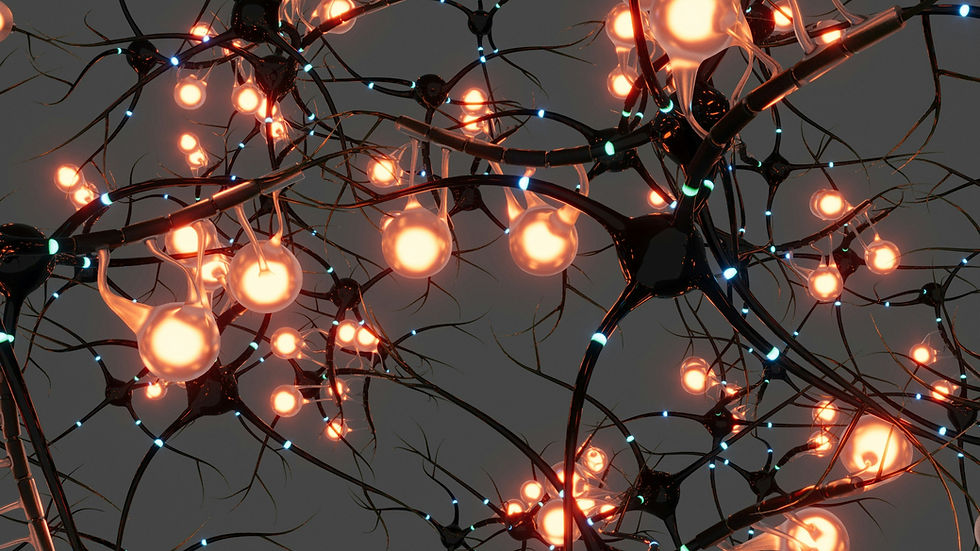Why Chronic Genital Pain Sufferers Are Still Being Gaslit by Doctors
- The Female Body

- Jun 11, 2025
- 3 min read

For millions of women living with chronic genital pain, the most excruciating part isn’t always the physical agony — it’s not being believed.
Conditions like endometriosis and vulvodynia, which affect roughly 1 in 10 women, can make even the most basic daily activities — sitting down, wearing tight clothing, undergoing a pelvic exam — feel unbearable. For many, sex becomes a source of suffering. Yet when they finally muster the courage to seek help, they’re often dismissed with a phrase all too familiar: “It’s all in your head.”
This isn’t just a failure of individual clinicians. It's a reflection of deep-rooted gender bias in medicine — a legacy of misogyny that continues to ignore or misdiagnose female pain.
The Reality of Medical Gaslighting
“Medical gaslighting” refers to when a patient’s symptoms are downplayed, misdiagnosed, or outright ignored by healthcare professionals. In the case of gynecological pain, this is more than an occasional oversight — it's systematic.
In a 2024 study, 45% of patients seeking help for vulvovaginal pain were told they simply needed to “relax more.” Nearly 40% were made to feel they were “crazy.” Over half considered giving up on seeking care altogether.
These aren’t isolated experiences. They’re common stories echoed in research and shared in hushed tones across support groups, Reddit threads, and advocacy circles.
“Sex feels like taking your most sensitive area and trying to rip it apart,” one woman told her doctor.“I never realised how much pain was affecting my life — until it finally stopped,” said another, after receiving proper treatment.
Why Doctors Don’t Believe Women
Much of this disbelief stems from outdated ideas baked into medicine itself. Women’s pain has long been seen as emotional, hysterical, or imaginary — a view dating back to Freud’s misguided theories that blamed female genital pain on "penis envy" and psychological complexes.
Fast forward to now, and those same harmful narratives are still shaping how pain is perceived and treated. Women are viewed as more emotional and, therefore, less credible. When they describe pain, it's often met with psychological solutions — not medical ones.
The situation is even worse for women of colour. A 2016 study found that half of white medical students held false beliefs about Black patients — including the myth that they have less sensitive nerve endings. These misconceptions translate directly into poorer care and more suffering.
The Funding Gap That Fuels Ignorance
At the heart of this crisis lies a dangerous lack of research. Diseases like endometriosis and vulvodynia remain poorly understood not because they’re rare — but because they’re underfunded.
In fact, the proportion of federal funding dedicated to women’s health research has declined in the last decade. In early 2025, the Trump administration even threatened to shut down the Women’s Health Initiative — a critical program shaping women’s healthcare for more than 30 years.
Without proper research, conditions go undiagnosed. Treatments remain outdated. And patients keep getting the same dismissive answers: "You're stressed. Try yoga. Have a glass of wine."
Breaking the Cycle
While system-wide change will take time, there are things both patients and professionals can do now:
For Clinicians:
Listen to patients. Believe their experiences.
Seek training on chronic gynecological conditions and the biases that fuel misdiagnosis.
Admit when you don’t know something. Patients don’t need perfection — they need partnership.
For Patients:
Arm yourself with knowledge. Read books like When Sex Hurts and follow trusted organisations like:
The International Pelvic Pain Society
The National Vulvodynia Association
The International Society for the Study of Vulvovaginal Disease
Find allies. Groups like Tight Lipped and The Endometriosis Association offer support and help connect you to clinicians who do take you seriously.
Reclaiming Trust, Reclaiming Health
No one should spend years of their life being ignored, dismissed, or disbelieved. And yet, millions of women around the world are still navigating a healthcare system that treats their pain as imaginary.




Comments